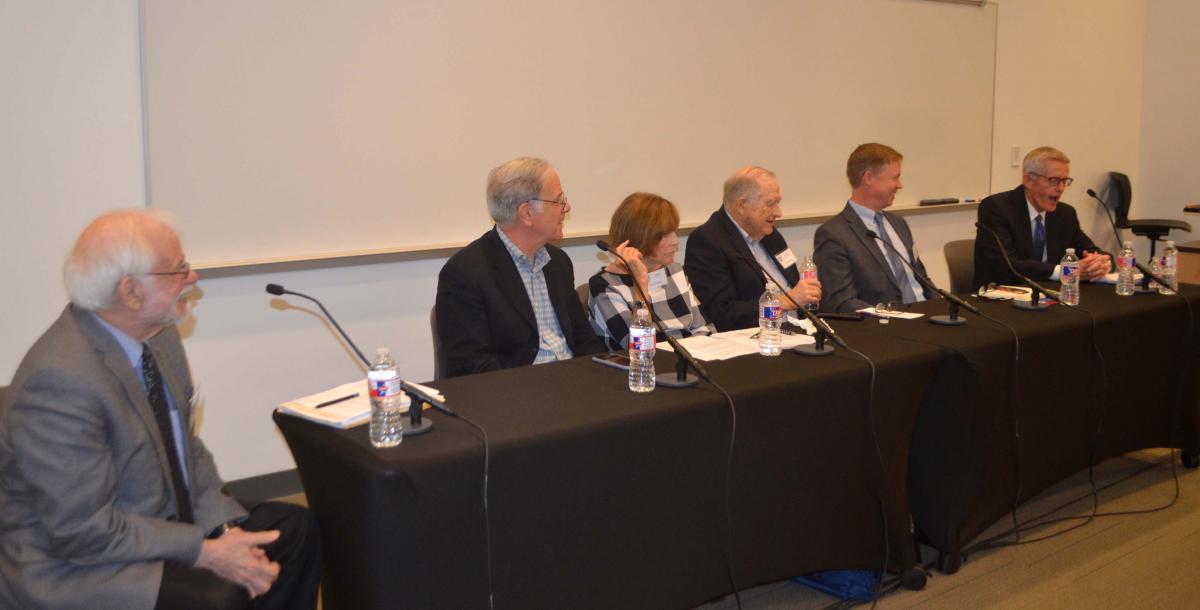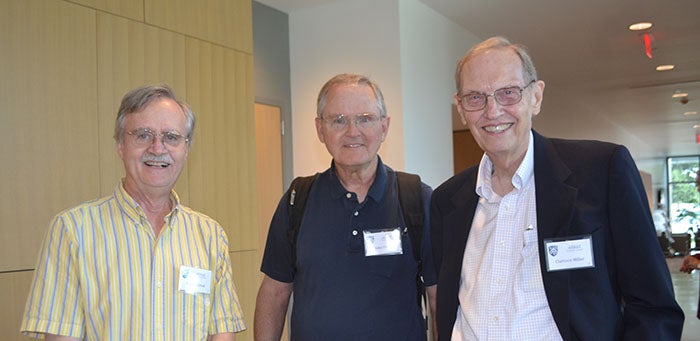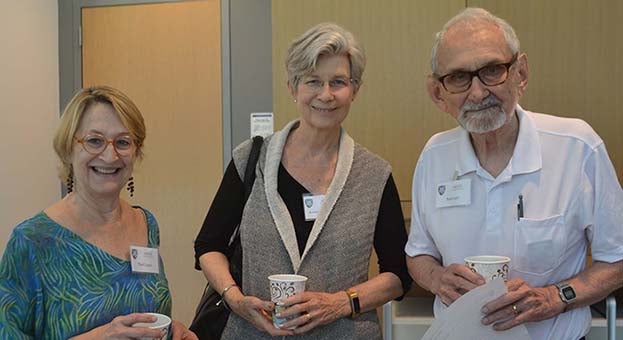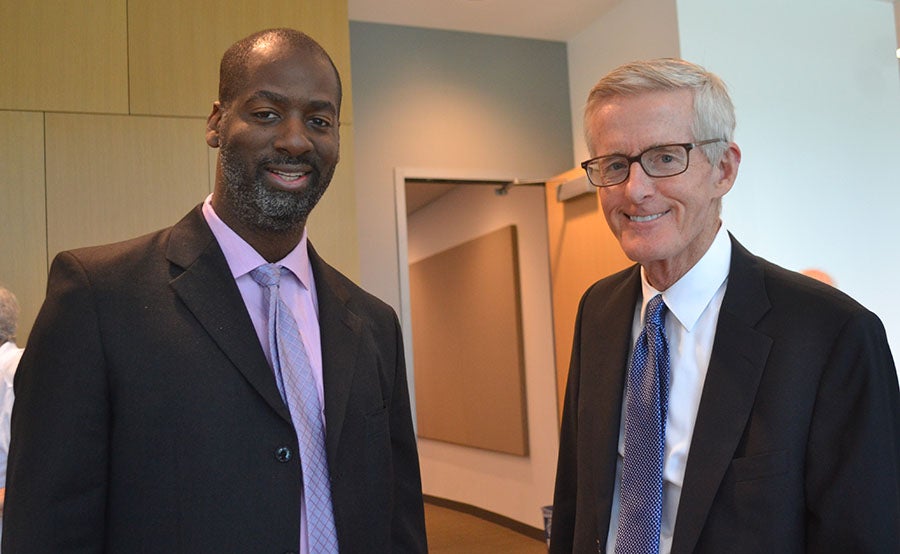The Role of Retired Faculty in Universities: Not Just a Single Story Now
In the mythology of retirement, an irretrievable loss of identity occurs. Late night host David Letterman confided ironically: “I’ll miss it, desperately. One of two things: There will be reasonable, adult acceptance of transition. Or I will turn to a life of crime” (NYTimes, May 3, 2015). Faculty, too, resist the change. On October 3rd, Rice administrators, faculty, off-campus guests, and members of the Association of Retired Rice University Faculty (ARRUF) met to consider options for retired faculty. The Susanne M. Glasscock School of Continuing Studies co-sponsored the event. C. Fred Hicks, III, Vice Provost for Academic Affairs, opened the session by emphasizing the lifelong connections faculty form with students, colleagues, and the University.
These connections may enable retired professors to resist a life of crime, but across the country universities and retired faculty are adapting in other ways, forming independent associations, university sponsored organizations, and even, at four universities, a new college or unit named “the emeritus college.” Roger Baldwin, the Mildred B. Erickson Distinguished Chair and Emeritus Professor of Higher, Adult, and Lifelong Education at Michigan State University, reviewed the results of a national study of such organizations. Their purposes are varied, from enhancing social interaction or travel to supporting teaching, research and other forms of scholarly work. However, a lack of clearly defined purpose and regular review, Baldwin told the audience, is keeping many of the organizations from maximizing their success.
The Association of Retired Rice University Faculty is investigating how the new organization can deliver potential benefits to the University as well as to former faculty members as individuals. After Baldwin’s presentation, a panel with varied experiences responded to the results of the survey, commenting on the implications for Rice. C. Sidney Burrus, Emeritus Professor and former dean of the George R. Brown School of Engineering, chaired the panel, which included Neal Lane, University Professor and former chancellor of the University of Colorado and provost of Rice University; Mary McIntire, former dean of the Susanne M. Glasscock School of Continuing Studies; James Pomerantz, Professor of Psychology and former dean of Social Sciences, Rice University, and former provost and acting president of Brown University; and Robert Bruce, Jr., Dean of the Susanne M. Glasscock School of Continuing Studies at Rice and former director of the University of North Carolina (UNC) at Chapel Hill’s William and Ida Friday Center for Continuing Education and director of the Center’s Office for Online Learning (COOL). Their diverse experiences with program development and faculty roles sparked a lively discussion of ARRUF’s prospects.
Over lunch, conference participants joined the discussion, recommending ideas to be explored at the November general meeting. Among these are representation and liaison activities with other campus institutes, departments, and organizations; collaboration with other universities’ retired faculty organizations; advocacy for members; clearer policies regarding emeritus and non-emeritus faculty; and services to departments and international students.
Current practices in departments and schools at Rice were surveyed in April. Survey results as well as consolidated recommendations from the October 3rd meeting will be weighed at the ARRUF general meeting and reception at Cohen House at 3 p.m. on Tuesday, November 13th. Members are urged to attend. Otherwise, a life of crime?
Below, participants enjoy the event:





